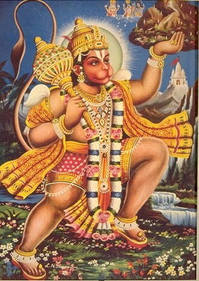I found out yesterday that Kristin, a dear friend and spiritual colleague, departed from this world after battling cancer. She spent only twenty-five years in this lifetime; by anyone’s estimation, she left us too soon.
In the Bhagavad-Gita, Lord Krishna dedicates lesson after lesson to Arjuna about the nature of death and dying. He informs Arjuna that the soul is eternal, surviving the destruction of the temporary body. He reminds Arjuna that the soul’s passing from the body at the time of death is as natural and perceptible as the soul’s passing from babyhood to youth to adulthood and to old age even within one lifetime. What is death, Krishna challenges Arjuna, but the ephemeral changing of garments? It is but an illusion we impose on ourselves, a state of forgetfulness of our own divine, eternal identities. The wise lament neither for the living nor the dead, Krishna advises, knowing the true self to be beyond this world of birth and death altogether.
Arjuna heard this philosophical treatise on death and dying. He heard it directly from the lips of the Supreme Lord Himself. By Krishna’s grace, he even saw with his eyes that awesome, terrifying form of the Divine as Death itself, all-devouring. He bowed his head in humility, accepted Krishna’s words as truth, and resolved to live his life according to those words.
And yet a few days later, when his son Abhimanyu was brutally slain on the battlefield, Arjuna broke down and wept. He beat his chest and cried bitter tears. He mourned.
The head knows; the heart feels.
Sometimes there is an expectation that we religious people — priests,
rabbis, pandits, chaplains — are supposed to be the ones with the
answers when it comes to death. We’re supposed to quote chapter and
verse and explain the big why.
I know that Kristin is an
eternal beautiful soul, and that by the inconceivable will of the
Divine she is now free of the confines of the particular body she had
been inhabiting. I know this, and I know the Bhagavad-Gita verses that
go with it.
But I miss her. I miss her smile and her humor and
her infectious enthusiasm and positivity. I remember the team we were–
she, the yoga teacher leading giggly students to become grounded and
introspective through asanas; me, trying my best to teach them
how to apply the yoga of devotion in their own lives. To be honest, I’m
sure that the students got more out of their 15 minutes with her than
their 45 with me. I usually ended up over-thinking things, complicating
the simple through information-overload. Kristin’s approach was all
heart. She was a yogini, but she was also a devotee in her simplicity
and bigheartedness. She seemed to grasp the essence of bhakti with an ease and innocence that I envied.
I
regret not spending more time with her, especially in her last days. I
regret not going deeper in our relationship. I mourn that loss too.
Hinduism
suggests that death and love are intimately related to one another, two
poles between which we live our fragile lives and walk our spiritual
paths. Consciousness is the vehicle that carries the soul from one
world to the next, and that ultimately carries the soul beyond death,
re-uniting it with its divine source, God. Such consciousness is made
up of absorption in love, and is the key to immortality.
Kristin
lived a life of sincere, spiritual practice. In her quiet, simple,
humble way, she aspired to awaken her spiritual love. Her Facebook
profile (now a tribute to her memory) includes a telling indication of
this: under religious views, she wrote “open to grace”.
Kristin,
I know that you received that grace and that your spiritual journey
continues, bringing you closer and closer to your Beloved. Thank you
for sharing the journey with me, if even for just a brief moment in
time. I miss you and hope that our paths may cross again.

